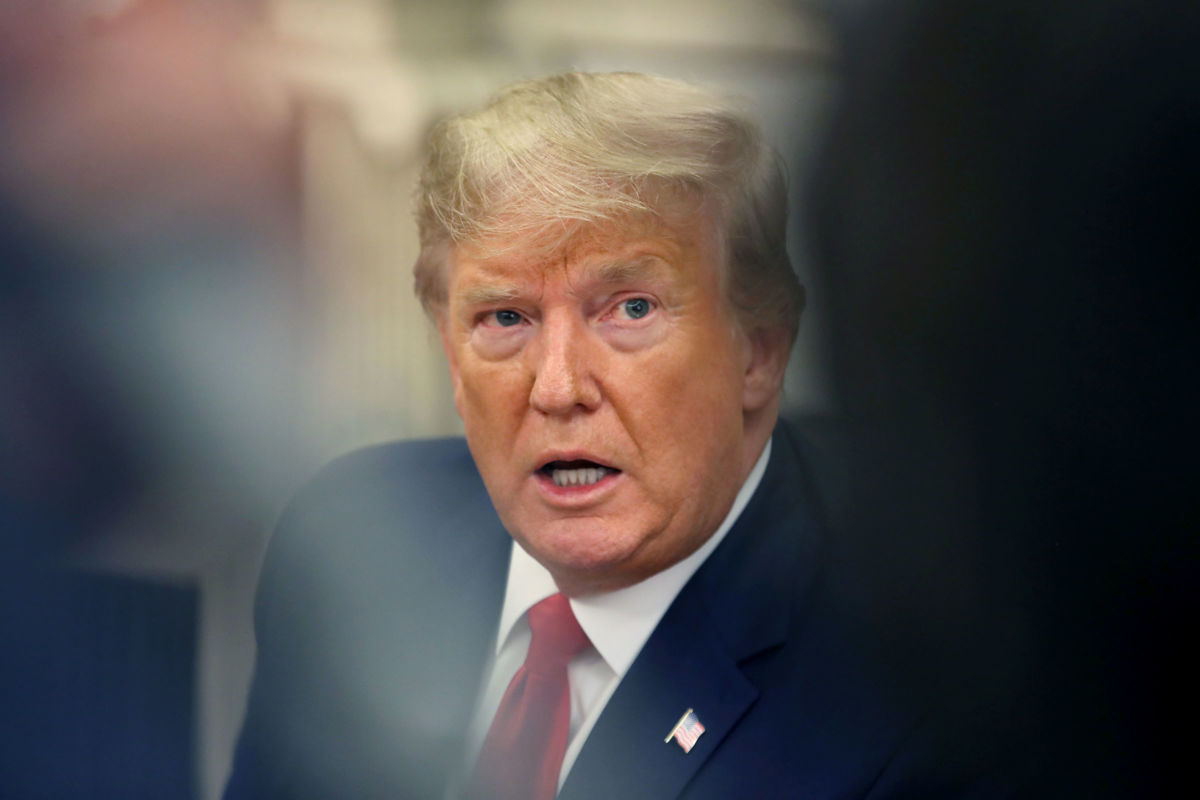A federal appeals court ruled Friday that President Trump can be sued for unconstitutionally benefiting from his ongoing ownership of the Trump Organization. The ruling by the Second Circuit Court of Appeals in New York reverses a district court decision that dismissed the lawsuit. It also breaks from a decision by the Fourth Circuit Court of Appeals in Virginia, setting up a potential Supreme Court showdown.
Trump has been sued three times in cases alleging that he is violating the Emoluments Clauses of the Constitution, which are anti-corruption provisions that prohibit the president from accepting payments from foreign or state governments. The Foreign Emoluments Clause disallows the acceptance of money from foreign governments without Congressional consent, and the Domestic Emoluments Clause sets the president’s salary.
All of these emoluments lawsuits could have been avoided if Trump had simply divested or placed his assets in a blind trust as every president since Nixon has done. But he hasn’t — even though he said he would — because he apparently believes that the rules don’t apply to him.
The New York case was brought by the nonprofit Citizens for Responsibility and Ethics in Washington, as well as plaintiffs in the hotel and restaurant industry. They argue that, by allowing foreign and state governments — which have an interest in influencing the Trump administration — to spend money at the president’s hotels, he is unconstitutionally competing with the plaintiff’s businesses.
The district court threw out the case, ruling that none of the plaintiffs had standing to sue. Only two of the plaintiffs in the hospitality industry appealed the ruling on standing. The appeals court disagreed with the lower court, saying that the case should proceed.
As I explore in my book Political Brands, the emoluments cases are interesting because they ask judges to tackle parts of the Constitution that have never been litigated before the Trump presidency. Moreover, most litigation in constitutional law inquires about the constitutionality of statutes or regulations. These cases ask an entirely different set of questions: essentially, is there such a thing as an unconstitutional market transaction? The Second Circuit didn’t rule on that question yet because it was only addressing a more narrow procedural matter.
In a 2-1 opinion, the Second Circuit recognized that the “The President’s establishments offer government patrons something that Plaintiffs cannot: the opportunity, by enriching the President, to obtain favorable governmental treatment from the President and the Executive branch.”
The court concluded that the plaintiffs have a strong case because they allege that “the marketplace is thus skewed in favor of Trump businesses because of his unlawful receipt of payments from government patrons.”
In dismissing the case, the lower court said that there was basically nothing that it could do if the president were violating the Constitution’s emoluments clauses. But in a refreshing assertion of authority, the appeals court wrote that there were, in fact, various remedies a court could order “that would adequately reduce the incentive for government officials to patronize Trump establishments in the hope of currying favor with the President.”
The Second Circuit didn’t cite Marbury v. Madison, which established the judiciary’s authority to act as a check on the other two branches of government, but it sure sounded like it when it wrote, “If the challenged conduct falls within what the Constitution describes as the receipt of ‘emoluments,’ the conduct is prohibited by the Constitution in the absence of congressional consent — and . . . it is likely simply to continue to occur without a court ruling.”
The president could now ask for the full Second Circuit to rehear the case, or it could go back to the district court for further proceedings, which would likely force Trump’s businesses to reveal how much money they’ve been paid by foreign officials. Or if the president’s team is feeling particularly confident, they could ask the Supreme Court to review the case.
Either way, Friday’s decision is a positive development. On too many occasions, courts have abdicated their responsibility to rein in Trump when he breaks the rules, even when those rules are found in the Constitution. In the future, judges need to remember that no one is above the law — especially the president.
Our most important fundraising appeal of the year
December is the most critical time of year for Truthout, because our nonprofit news is funded almost entirely by individual donations from readers like you. So before you navigate away, we ask that you take just a second to support Truthout with a tax-deductible donation.
This year is a little different. We are up against a far-reaching, wide-scale attack on press freedom coming from the Trump administration. 2025 was a year of frightening censorship, news industry corporate consolidation, and worsening financial conditions for progressive nonprofits across the board.
We can only resist Trump’s agenda by cultivating a strong base of support. The right-wing mediasphere is funded comfortably by billionaire owners and venture capitalist philanthropists. At Truthout, we have you.
We’ve set an ambitious target for our year-end campaign — a goal of $250,000 to keep up our fight against authoritarianism in 2026. Please take a meaningful action in this fight: make a one-time or monthly donation to Truthout before December 31. If you have the means, please dig deep.
